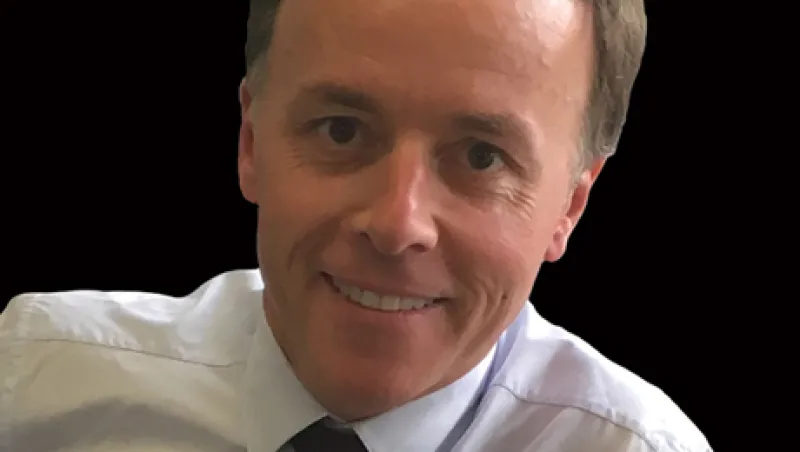Severin Brizay likes a challenge. The head of mergers and acquisitions for Europe, the Middle East and Africa at UBS recently ran a half marathon in North Korea because he was fascinated by the country and wanted to visit; next month he will compete in the annual international triathlon in Deauville, a town in the Normandy region of his native France.
Brizay also tested himself in 2014 by leaving JPMorgan Chase & Co., where he served as managing director, after almost 15 years to revive UBS’s M&A business in EMEA. Hobbled by the 2008–’09 financial crisis, the Swiss firm had dramatically scaled back its investment bank in favor of wealth management.
“When I joined there was no longer an M&A team in EMEA, but I met with the senior management, liked their vision and determination and immediately saw the potential to rebuild this franchise,” recalls London-based Brizay. “My mission is to help turn UBS into Europe’s leading M&A house globally through building strong long-term client relationships.”
Since he arrived, Brizay, 46, has overhauled M&A coverage, reducing the focus on clients that don’t provide regular fees in favor of those with more potential. For the first quarter, UBS ranked third in European M&A, according to Dealogic, advising on 16 deals worth a collective $76 billion. Last year the firm took 13th place, working on 73 transactions with a combined value of $128 billion, versus 12th in 2014, when it advised on 77 deals worth a total of almost $150 billion.
UBS has won a role on three of the five largest deals to be announced in Europe so far this year. The bank advised the London Stock Exchange on its pending $30 billion takeover by Deutsche Börse; Britain’s Vodafone Group on a $21 billion asset swap with London-based cable giant Liberty Global; and Swiss seeds and pesticides conglomerate Syngenta on a $43 billion takeover bid from state-owned China National Chemical Corp. (ChemChina), which has been extended until July.
Brizay has also been busy with deals himself, representing U.S. buyout firm KKR & Co. on its €1 billion ($1.07 billion) acquisition of French call center operator Webhelp last November. “This was the first advisory mandate UBS has done for KKR in Europe for many years,” he says. He followed that purchase by advising KKR on the pending sale of French fashion retailer SMCP to Chinese textiles manufacturer Shandong Ruyi for €1.3 billion in March. In both cases Brizay brought his experience to bear: He’s a friend of Webhelp co-founder Frédéric Jousset, and he worked with SMCP in 2013 when KKR acquired more than 60 percent of the company in a deal worth roughly €650 million.
After completing an economics degree at the École des hautes études commerciales de Paris in his hometown in 1993, Brizay joined the French navy for his national service. Wishing to show the value of such service, the French government was looking to put conscripts into high-profile positions. At 23, Brizay found himself thrust into the spotlight as aide-de-camp to Admiral Jacques Lanxade, chair of the joint chiefs of staff of the French armed forces, a post that took him around the world and brought him into contact with celebrities ranging from then–U.S. president Bill Clinton to Princess Diana.
Brizay had planned to stay with the navy for a year, but he doubled his term, missing all of the deadlines to apply to U.S. banks. “It was then that I got my second stroke of luck,” says the deal maker, who is married with two children.
After Brizay joined the Paris office of Banque Paribas in 1995 as an analyst, Jean-François Biard, one of France’s best-known corporate financiers and then head of a team specializing in public M&A, took the junior banker under his wing. In 1999, Brizay advised Paribas on its attempted $17.2 billion merger with Société Générale and its subsequent defense against Banque Nationale de Paris’s hostile $37 billion bid for both firms, a move that led to the creation of BNP Paribas.
Brizay left Banque Paribas that year to join J.P. Morgan, which at the time was not one of Europe’s leading M&A houses. “It was not a tier-1 bank in Europe, but over the next few years I was part of a team that built up the franchise,” he says. Brizay is pragmatic: “It’s impossible to have everyone as a client, so you have to choose and focus on those where you can make a difference.” Thanks to this approach, he became a trusted adviser to such blue-chip French names as drinks maker Pernod Ricard, beauty care company L’Oréal and engineering firm Schneider Electric.
Starting as an associate at J.P. Morgan, he was promoted to vice president soon after the parent firm’s 2000 merger with Chase Manhattan Bank. In 2005 he advised Pernod Ricard on its £7.4 billion ($14.2 billion) joint acquisition of U.K.-listed Allied Domecq with Deerfield, Illinois–based Fortune Brands. “Severin is able to manage supercomplex deal processes and also has a good understanding of the emotional components involved,” says Emmanuel Babeau, then CFO of Pernod Ricard and now Schneider’s deputy CEO in charge of finance and legal affairs. “He is prepared to advise a management team not to pursue a transaction, and that builds trust and proves he is a top banker.”
Brizay may seek to forge lasting ties with clients, but he’s also in a hurry to execute on his plan. Much will depend on how Europe’s M&A market performs. “Europe was the least active region in the world for the first time in 2015, and I believe that will change,” Brizay says. For his bank, the most interesting theme is that cross-regional plays now account for the lion’s share of European deals, he adds: “We are positioning ourselves to make the most of this, by leveraging UBS’s unique platform in China, for example.”






